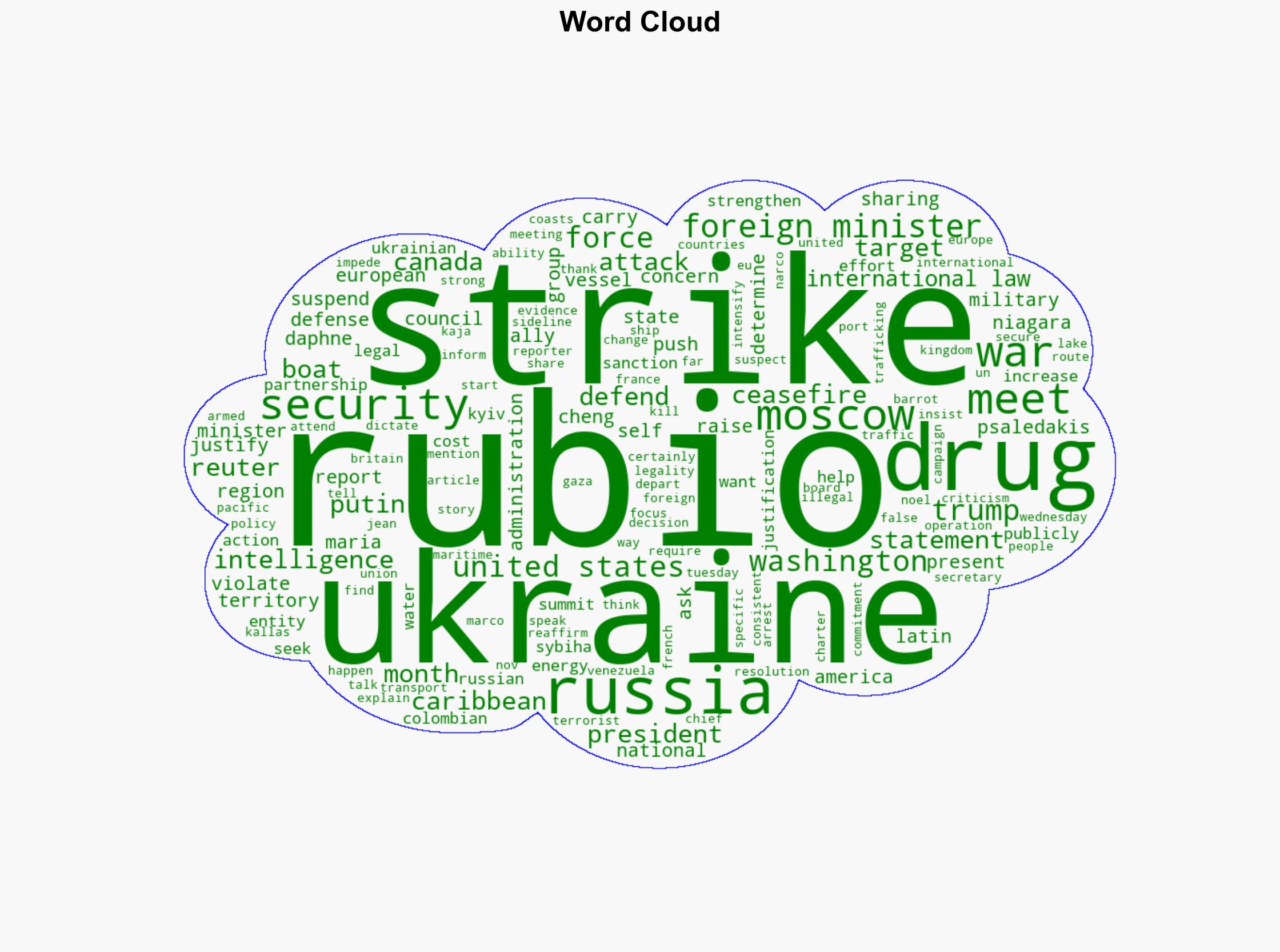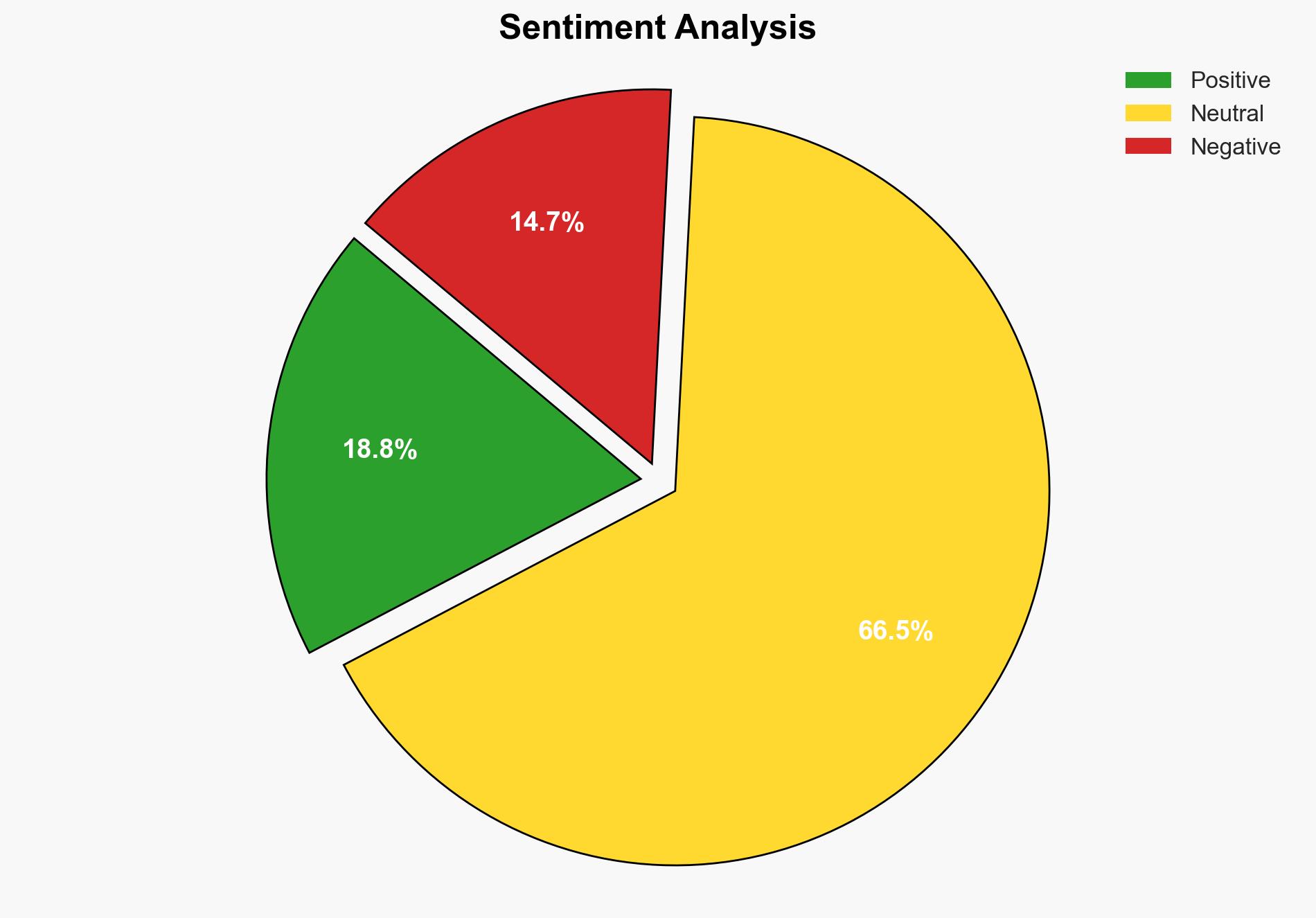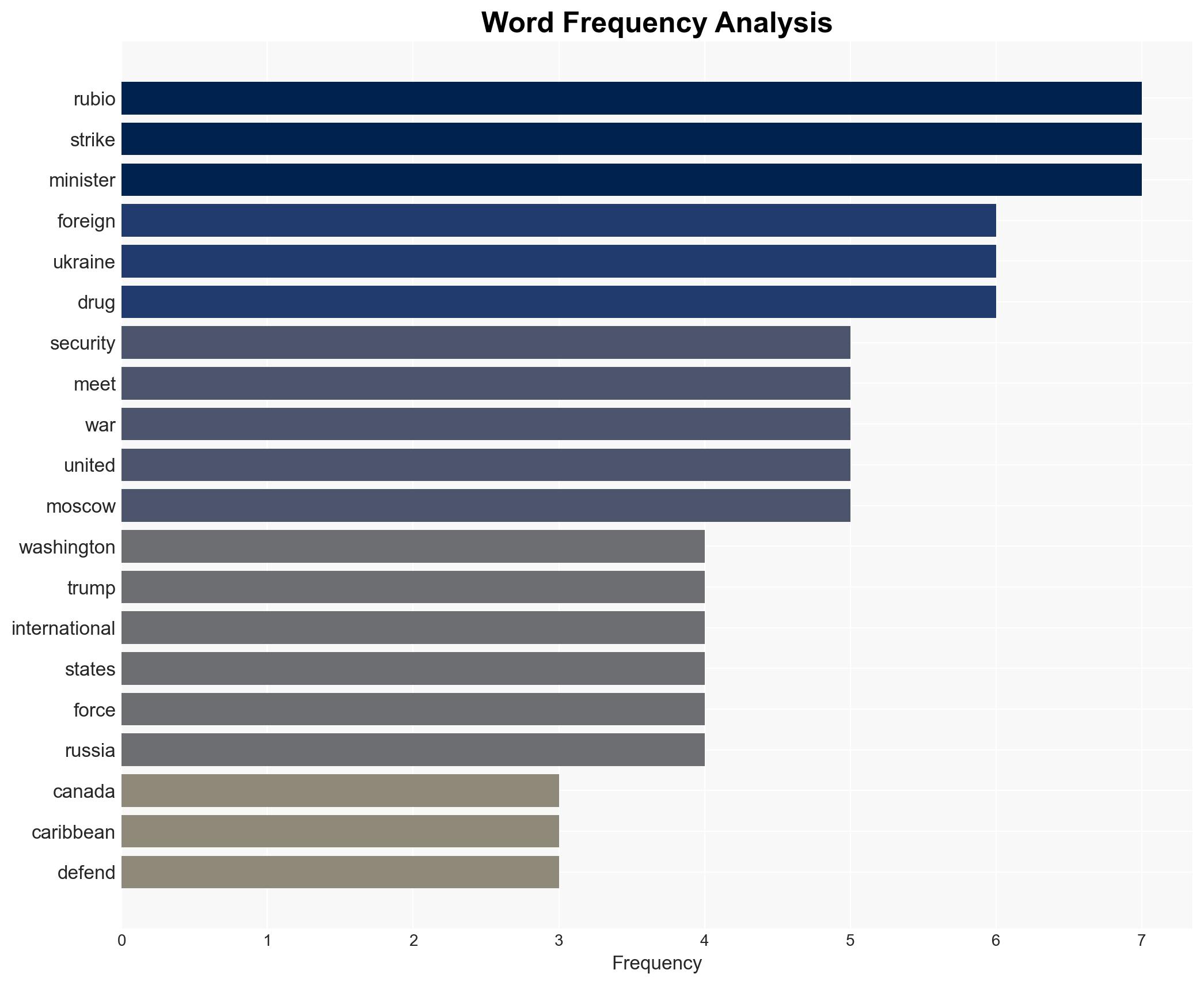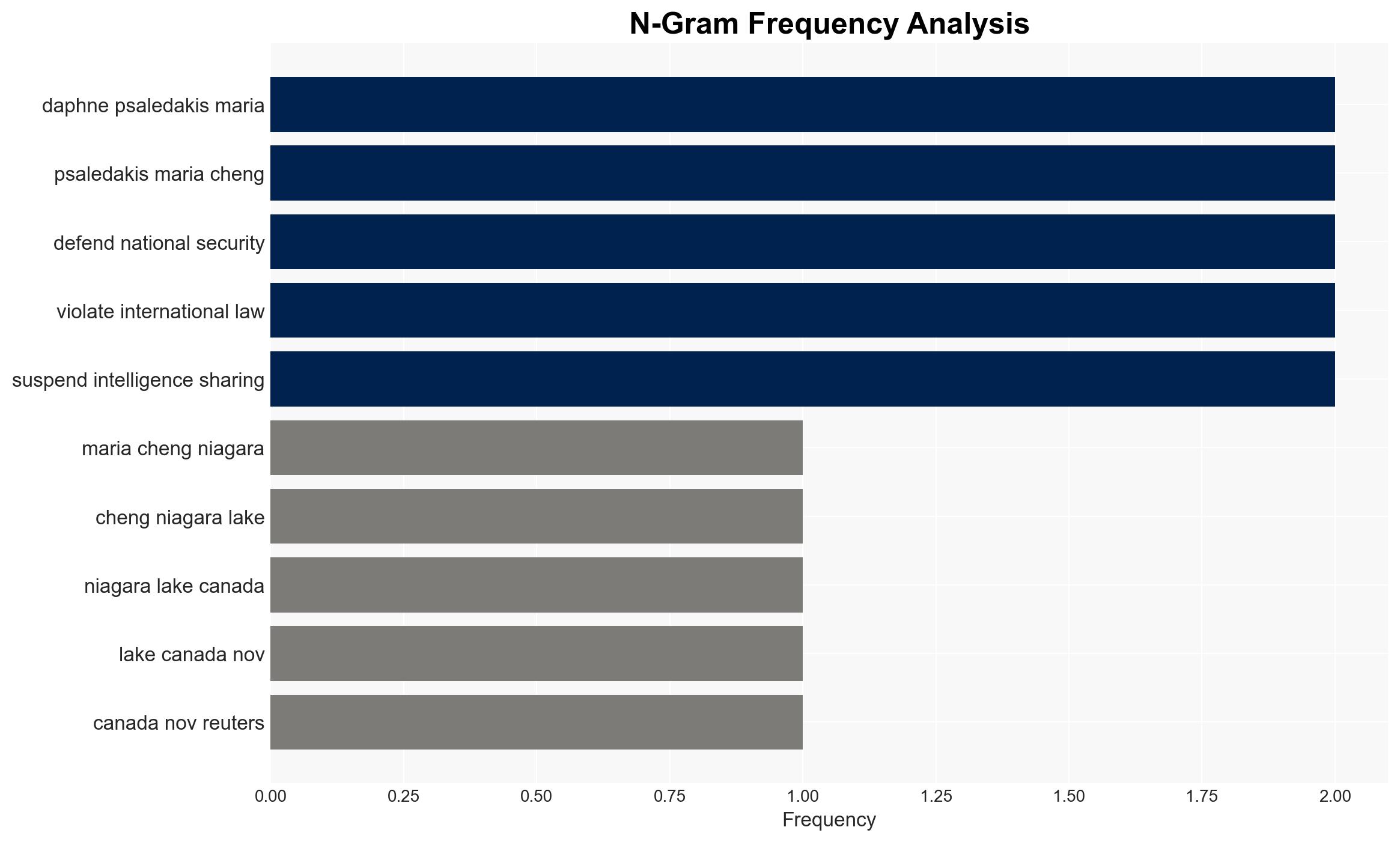Rubio Dismisses Criticism of US Caribbean Strikes at G7 Meeting – gcaptain.com
Published on: 2025-11-13
AI-powered OSINT brief from verified open sources. Automated NLP signal extraction with human verification. See our Methodology and Why WorldWideWatchers.
Intelligence Report: Rubio Dismisses Criticism of US Caribbean Strikes at G7 Meeting – gcaptain.com
1. BLUF (Bottom Line Up Front)
The most supported hypothesis is that the US conducted the Caribbean strikes under a broad interpretation of self-defense against narco-terrorism, prioritizing national security over international legal consensus. Confidence Level: Moderate. Recommended action includes diplomatic engagement to clarify legal positions and mitigate international backlash, while reinforcing intelligence-sharing frameworks with allies.
2. Competing Hypotheses
Hypothesis 1: The US strikes in the Caribbean were conducted as a legitimate act of self-defense against narco-terrorist threats, consistent with US national security priorities.
Hypothesis 2: The US strikes were primarily politically motivated, aiming to assert dominance and influence in the region, potentially disregarding international law and norms.
Hypothesis 1 is more likely due to the US’s historical emphasis on counter-narcotics operations and the framing of these actions as necessary for national security. However, the lack of transparent legal justification and international criticism lends some credence to Hypothesis 2.
3. Key Assumptions and Red Flags
Assumptions: The US perceives drug trafficking as a direct threat to national security. The strikes were based on credible intelligence about narco-terrorist activities.
Red Flags: Lack of public legal justification for the strikes. Potential misalignment with international law, raising questions about the legitimacy of the actions.
Deception Indicators: Possible exaggeration of the threat level to justify military action. Diplomatic rhetoric may mask underlying strategic objectives.
4. Implications and Strategic Risks
The strikes could strain US relations with European allies, particularly if perceived as unilateral actions violating international law. This may lead to reduced intelligence sharing and cooperation on broader security issues. Additionally, there is a risk of escalating tensions in the Caribbean, potentially provoking retaliatory actions from affected states or non-state actors.
5. Recommendations and Outlook
- Engage in diplomatic dialogue with European allies to clarify legal justifications and address concerns about international law violations.
- Enhance transparency in counter-narcotics operations to build trust with international partners.
- Monitor regional responses to anticipate potential escalations or retaliatory measures.
- Best-case scenario: Strengthened international cooperation on counter-narcotics, with improved legal frameworks.
- Worst-case scenario: Breakdown of alliances and increased regional instability.
- Most-likely scenario: Continued diplomatic tensions with gradual resolution through negotiations and legal clarifications.
6. Key Individuals and Entities
Marco Rubio, Jean-Noel Barrot, Kaja Kallas, Gustavo Petro, Andrii Sybiha
7. Thematic Tags
National Security Threats, International Law, Diplomatic Relations, Counter-Narcotics Operations
Structured Analytic Techniques Applied
- Cognitive Bias Stress Test: Expose and correct potential biases in assessments through red-teaming and structured challenge.
- Bayesian Scenario Modeling: Use probabilistic forecasting for conflict trajectories or escalation likelihood.
- Network Influence Mapping: Map relationships between state and non-state actors for impact estimation.
Explore more:
National Security Threats Briefs ·
Daily Summary ·
Methodology





